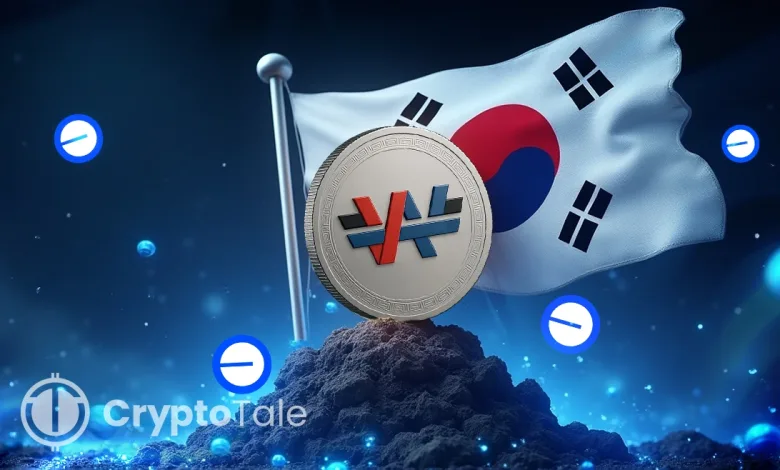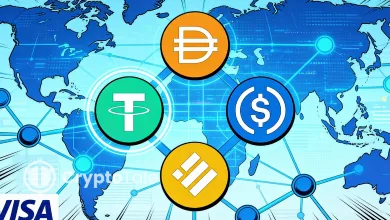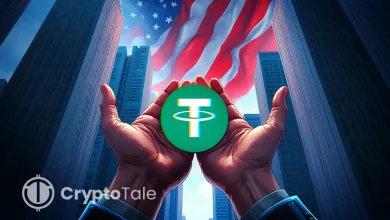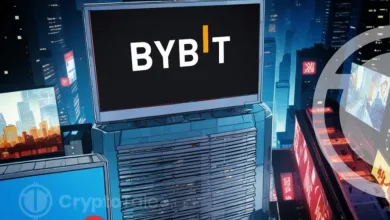Korean Won Goes On-Chain as KRWQ Launches on Coinbase’s Base

- KRWQ debuts as the first Korean won stablecoin on Coinbase’s Base network for global use.
- The Bank of Korea warns that private stablecoins could threaten national monetary control.
- KRW1 enters testing on Avalanche and Circle Arc, joining Korea’s growing stablecoin race.
A digital version of South Korea’s national currency has officially entered the blockchain space. According to reports, IQ and Frax have launched KRWQ, the first stablecoin tied to the Korean won (KRW), on Coinbase’s Base network, an Ethereum Layer 2 system designed for scalability and low-cost transactions.
The rollout introduces a KRWQ–USDC trading pair on AerodromeFi, giving traders their first opportunity to move won-backed value through a public blockchain. The project utilizes LayerZero’s Omnichain Fungible Token (OFT) technology, enabling users to transfer KRWQ across multiple blockchains with minimal friction.
Although South Korean residents cannot yet use KRWQ due to domestic regulations, the launch marks a turning point for Asia’s stablecoin market. Navin Vethanayagam, IQ’s Chief Brain, described it as a missing piece in global finance, noting that won-backed assets have never achieved meaningful adoption until now.
IQ and Frax Build a Cross-Chain Framework for Stable Liquidity
KRWQ is a joint initiative between IQ and Frax Finance, which previously developed the U.S. dollar-pegged frxUSD. The token utilizes LayerZero’s Omnichain Fungible Token standard and the Stargate bridge, enabling users to transfer KRWQ across multiple chains without compromising stability or transparency.
The token’s liquidity begins on Base, where Aerodrome hosts the first KRWQ–USDC market. According to reports, the Base network was selected for its low transaction costs, security, and strong developer support. IQ stated that the project’s design reflects its focus on transparency and compliance.
Minting and redemption of KRWQ remain restricted to regulated entities, including exchanges, market makers, and financial institutions. This ensures that a transparent and verifiable reserve base backs every KRWQ in circulation.
IQ said it applied Frax’s experience in stablecoin compliance to KRWQ’s design to meet expected regulations in South Korea. The company described KRWQ as “a stablecoin developed in anticipation of upcoming legislation now being discussed in the Korean National Assembly.”
Regulatory Landscape Shapes the Path for Won-Pegged Assets
KRWQ’s availability remains limited outside Korea as the country finalizes new laws for digital currencies. The proposed Digital Asset Basic Act, introduced by the ruling Democratic Party, would establish capital and redemption requirements for stablecoin issuers while ensuring transparency in reserves.
On the other hand, the Bank of Korea (BOK), led by Governor Rhee Chang-yong, released a recent study titled “Currency in the Digital Age: Harmony of Innovation and Trust.” The report warned that private stablecoin issuers could pose risks to financial stability if proper controls are not enforced. It stated that poor reserve management or volatile collateral could lead to a loss of peg confidence, similar to the collapse of TerraUSD in 2022.
Consequently, the BOK maintains that only licensed financial institutions should be allowed to issue stablecoins to ensure proper oversight. However, technology firms argue that allowing regulated non-bank issuers could support healthy competition and drive innovation in the market.
KRWQ’s approach aligns with the idea of controlled innovation—ensuring compliance while opening access to the global blockchain economy.
Related: U.S. Prosecutors Challenge Crypto Policy in MEV Bot Trial
KRW1 and KRWQ Lead Korea’s Stablecoin Race
KRWQ’s debut follows the KRW1 project by BDACS, launched on the Avalanche network earlier this year. KRW1 remains in testing but recently gained momentum after BDACS signed an agreement with Circle to extend KRW1 onto Circle’s Arc network.
“This collaboration is a meaningful step for Korean innovation to leap onto the global stage,” said Hongyeol Ryu, CEO of BDACS. “By distributing KRW1 to Circle Arc, we have opened a gateway for Korean companies to participate in the global stablecoin network.”
Both KRWQ and KRW1 indicate that South Korea’s financial sector is preparing for the integration of digital currency. Since the election of President Lee Jae Myung, the government has promoted blockchain-based finance to strengthen national monetary sovereignty.
As legal frameworks mature, the Korean won’s digital versions could play a crucial role in bridging the gap between Asian and Western financial systems. The KRWQ launch on Base marks a significant step toward that transformation—placing Korea’s currency firmly in the global DeFi landscape.




